#Sunnah prayers
Text
ramadan 30 day challenge

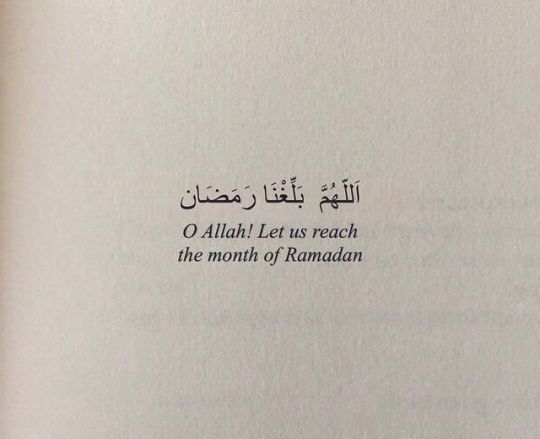

introducing the ramadan 30 day challenge!
I made this challenge in the hopes of catering to as many people as I can - so, regardless of anyone's home situation, health, money, whether or not you live near a mosque or a community etc, I think it is somewhat do-able or adaptable for all! you can access anything you need for this (verses/surahs from the Qur'an for eg) online. I also know that for some people (depending on countries etc), ramadan is either 29 or 30 days, so it's fine to finish on the 29th day if necessary.
if you miss a couple days as well (or end up seeing this post halfway through ramadan), just pick up from whatever day of ramadan it is!
it starts off easy and gets harder as you go along! i'm also going to be doing this ramadan challenge and posting my own updates on here, Insha’Allah! if you do this too, please do tag me because I would love to see how people are getting on! ♡ here it is:
recite surah ikhlas 3 times
recite durood sharif 3 times
read Qur'an after asr
recite the 3 Quls (last 3 surahs of the Qur'an) in the evening/before sleeping today
listen to an islamic podcast
write down 5 things you are grateful to Allah for on paper or phone notes app
istighfar 100 times
read all of surah mulk before bed
wake up for tahajjud and pray (at least) 2 rakaats
learn 5 names/attributes of Allah سُبْحَٰنَهُۥ وَتَعَٰلَىٰ
do something nice for somebody else - can even be very small and will still be rewarded for it
wear your favourite abaya/thobe/modest clothing for every salah today. look your best for Allah سُبْحَٰنَهُۥ وَتَعَٰلَىٰ in your prayer like you would to go to a special event
give some (charity) sadaqah (create a sadaqah jar/box!)
read the last 2 verses of surah baqarah before sleeping
make a du'a for your friends and family - name them and pray for something specific for each of them
read all of surah Ya Sin after fajr
pray 2 nafl rakaats (voluntary prayer) today after the 2 sunnah rakaats of zuhr
no backbiting/gossiping about anyone at all and 2 nafl rakaats (voluntary prayer) if you do
pick a surah from the Qur'an and read the commentary for each verse
memorise the dua to recite on laylatul qadr
اللَّهُمَّ إِنَّكَ عَفُوٌّ تُحِبُّ الْعَفْوَ فَاعْفُ عَنِّي
Allahumma innaka 'Afuwwun, tuhibbul 'afwa, fa'fu 'anni
"O Allah, You are indeed Forgiving and love to forgive, so forgive me."
donate to a charity (for palestine!!). even the smallest amount will be beneficial + rewarded by Allah
recite ayatul kursi after each 5 fard (obligatory) salah
pray all the 12 sunnah today: 2 rakaats before Fajr; 4 rakaats before zuhr and two rakaats after; 2 rakaats after Maghrib; and 2 rakaats after Ishaa
pray (at least) 2 rakaats of taraweeh (either at the mosque or at home by yourself/with family!)
pray 2 rakaats of duha (optional) prayer - it is between 15 minutes after sunrise until zuhr time. (not after zuhr!!)
recite subhanallahi wabihamdi, subhanallahil adheem 100 times -
(Glory be to Allah and all praise is due to Him, glory be to Allah, the Great)
be extra modest today (tailored to you. wear hijab outside if you don't, or wear your loosest outfit or lower your gaze completely (including lowering it on social media) today etc. whatever being extra modest is for you, do that today).
pray on time, no procrastination or delays. check what local time each prayer is for you and pray then (unless you're praying at the mosque!)
istighfar x1000 times
pray some of the nawafil ON TOP OF all the sunnah prayers that accompany the 5 obligatory prayers:
- 2 rakaats of duha prayer
- 2 rakaats after the 2 sunnah rakaats of zuhr
- 4 rakaats before asr
- 2 rakaats after the 2 sunnah rakaats of maghrib
- 2 rakaats after the 2 sunnah rakaats of ishaa
(extra challenge: wake up for tahajjud too)
level extreme: if you want an extra extra challenge, you can continue doing each one every day as you go along. so day 1 would be recite surah ikhlas 3 times and day 2 would be recite surah ikhlas and durood sharif 3 times, day 3 would be recite surah ikhlas and durood sharif 3 times and read Qur'an after asr... and you get the gist. if you do this, good luck on day 30 when you have 30 things to do lol
note: giving sadaqah (charity) can be adapted if donating money is a struggle - for eg, doing dhikr on behalf of somebody else can count as sadaqah. click here for more info on this.
may Allah make this challenge easy for whoever intends to participate and let the deeds indeed be multiplied by 100 this ramadan and forgive us for our shortcomings, Ameen ♡
#ramadan challenge#ramadan#islam#muslim#ramadan series#religion#allah#sabrgirl#quran#prayers#islamic#muslims#sunnah#ramadan tips#ramadan mubarak
205 notes
·
View notes
Text
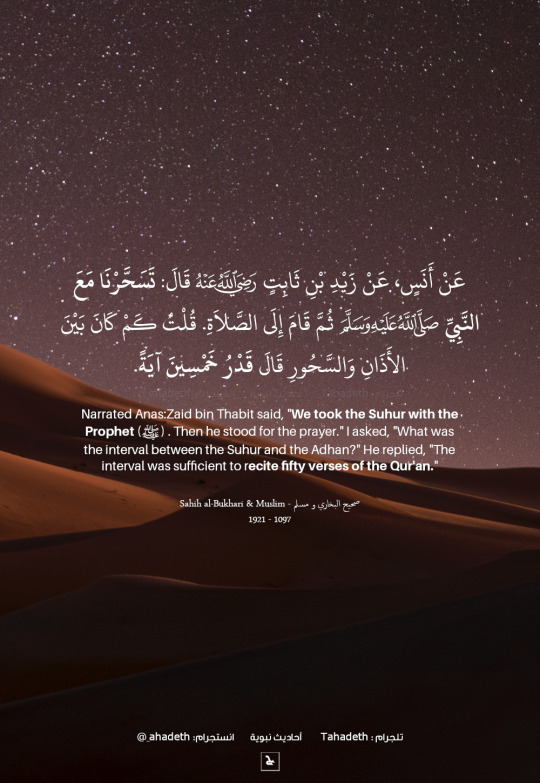
عَنْ أَنَسٍ، عَنْ زَيْدِ بْنِ ثَابِتٍ ـ رضى الله عنه ـ قَالَ: تَسَحَّرْنَا مَعَ النَّبِيِّ صلى الله عليه وسلم ثُمَّ قَامَ إِلَى الصَّلاَةِ. قُلْتُ كَمْ كَانَ بَيْنَ الأَذَانِ وَالسَّحُورِ قَالَ قَدْرُ خَمْسِينَ آيَةً. صحيح البخاري ومسلم حديث ١٩٢١ - ١٠٩٧
Narrated Anas: Zaid bin Thabit said, "We took the Suhur with the Prophet (peace be upon him) . Then he stood for the prayer." I asked, "What was the interval between the Suhur and the Adhan?" He replied, "The interval was sufficient to recite fifty verses of the Qur'an." Sahih al-Bukhari 1921 In-book reference : Book 30, Hadith 30 // Sahih Muslim 1097a In-book reference : Book 13, Hadith 58
قَوْلُهُ قَالَ قَدْرُ خَمْسِينَ آيَةً أَيْ مُتَوَسِّطَةً لَا طَوِيلَةً وَلَا قَصِيرَةً لَا سَرِيعَةً وَلَا بَطِيئَةً وَقَدْرُ بِالرَّفْعِ عَلَى أَنَّهُ خَبَرُ الْمُبْتَدَأِ وَيَجُوزُ النَّصْبُ عَلَى أَنَّهُ خَبَرُ كَانَ الْمُقَدَّرَةِ فِي جَوَابِ زَيْدٍ لَا فِي سُؤَالِ أَنَسٍ لِئَلَّا تَصِيرَ كَانَ وَاسْمُهَا مِنْ قَائِلٍ وَالْخَبَرُ مِنْ آخَرَ قَالَ الْمُهَلَّبُ وَغَيْرُهُ فِيهِ تَقْدِيرُ الْأَوْقَاتِ بِأَعْمَالِ الْبَدَنِ وَكَانَتِ الْعَرَبُ تُقَدِّرُ الْأَوْقَات بِالْأَعْمَالِ كَقَوْلِهِم قَدْرَ حَلْبِ شَاةٍ وَقَدْرَ نَحْرِ جَزُورٍ فَعَدَلَ زَيْدُ بْنُ ثَابِتٍ عَنْ ذَلِكَ إِلَى التَّقْدِيرِ بِالْقِرَاءَةِ إِشَارَةً إِلَى أَنَّ ذَلِكَ الْوَقْتَ كَانَ وَقْتَ الْعِبَادَةِ بِالتِّلَاوَةِ وَلَوْ كَانُوا يُقَدِّرُونَ بِغَيْرِ الْعَمَلِ لَقَالَ مَثَلًا قَدْرَ دَرَجَةٍ أَوْ ثُلُثِ خمس سَاعَة.
وَقَالَ بن أَبِي جَمْرَةَ فِيهِ إِشَارَةٌ إِلَى أَنَّ أَوْقَاتِهُمْ كَانَتْ مُسْتَغْرَقَةً بِالْعِبَادَةِ وَفِيهِ تَأْخِيرُ السُّحُورِ لِكَوْنِهِ أبلغ فِي الْمَقْصُود قَالَ بن أَبِي جَمْرَةَ كَانَ صَلَّى اللَّهُ عَلَيْهِ وَسَلَّمَ يَنْظُرُ مَا هُوَ الْأَرْفَقُ بِأُمَّتِهِ فَيَفْعَلُهُ لِأَنَّهُ لَوْ لَمْ يَتَسَحَّرْ لَاتَّبَعُوهُ فَيَشُقُّ عَلَى بَعْضِهِمْ وَلَوْ تَسَحَّرَ فِي جَوْفِ اللَّيْلِ لَشَقَّ أَيْضًا عَلَى بَعْضِهِمْ مِمَّنْ يَغْلِبُ عَلَيْهِ النَّوْمُ فَقَدْ يُفْضِي إِلَى تَرْكِ الصُّبْحِ أَوْ يَحْتَاجُ إِلَى الْمُجَاهَدَةِ بِالسَّهَرِ.
وَقَالَ فِيهِ أَيْضًا تَقْوِيَةٌ عَلَى الصِّيَامِ لِعُمُومِ الِاحْتِيَاجِ إِلَى الطَّعَامِ وَلَوْ تُرِكَ لَشَقَّ عَلَى بَعْضِهِمْ وَلَا سِيَّمَا مَنْ كَانَ صَفْرَاوِيًّا فَقَدْ يُغْشَى عَلَيْهِ فَيُفْضِي إِلَى الْإِفْطَارِ فِي رَمَضَانَ قَالَ وَفِي الْحَدِيثِ تَأْنِيسُ الْفَاضِلِ أَصْحَابَهُ بِالْمُؤَاكَلَةِ وَجَوَازُ الْمَشْيِ بِاللَّيْلِ لِلْحَاجَةِ لِأَنَّ زَيْدَ بْنَ ثَابِتٍ مَا كَانَ يَبِيتُ مَعَ النَّبِيِّ صَلَّى اللَّهُ عَلَيْهِ وَسَلَّمَ وَفِيهِ الِاجْتِمَاعُ عَلَى السُّحُورِ وَفِيهِ حُسْنُ الْأَدَبِ فِي الْعِبَارَةِ لِقَوْلِهِ تَسَحَّرْنَا مَعَ رَسُولِ اللَّهِ صَلَّى اللَّهُ عَلَيْهِ وَسَلَّمَ وَلَمْ يَقُلْ نَحْنُ وَرَسُولُ اللَّهِ صَلَّى اللَّهُ عَلَيْهِ وَسَلَّمَ لِمَا يُشْعِرُ لَفْظُ الْمَعِيَّةِ بِالتَّبَعِيَّةِ... فتح الباري شرح صحيح البخاري لابن حجر
فِيهِ دَلِيلُ اسْتِحْبَابِ تَأْخِيرِ السَّحُورِ، وَتَقْرِيبِهِ مِنْ الْفَجْرِ. ابن دقيق العيد
الحديث ترجم عليه الإمام البخاري –رحمه الله تعالى- بقوله: باب قدر كم بين السحور وصلاة الفجر أي: انتهاء السحور وابتداء الصلاة، يعني: المدة بين انتهاء السحور وابتداء الصلاة؛ لأن المراد تقدير الزمان الذي تُرك فيه الأكل، الفاصل بين نهاية الأكل الذي هو نهاية السحور وإقامة الصلاة.
"والمراد بفعل الصلاة أول الشروع فيها" وصلاة الفجر ليس المراد نهايتها؛ لئلا يقال: إن الخمسين آية في نفس الصلاة.
والمراد بفعل الصلاة أول الشروع فيها، قاله الزين بن المنيَّر فيما نقله ابن حجر. وقال العيني: مطابقته للترجمة من حيث إن فيه تأخير السحور إلى أن يبقى من الوقت بين الأذان وأكل السحور مقدار خمسين آية... شرح كتاب التجريد الصريح لأحاديث الجامع الصحيح للخضير
Hadith Translation/ Explanation : English French Spanish Turkish Urdu Indonesian Bosnian Russian Bengali Chinese Persian Sinhalese Tagalog Indian Vietnamese Sinhalese Kurdish Hausa Portuguese: https://hadeethenc.com/en/browse/hadith/4457
#حديث#أحاديث نبوية#الرسول#الرسول صلى الله عليه وسلم#النبي محمد صلى الله عليه و آله وسلم#صلى الله عليه وسلم#محمد صلى الله عليه وسلم#رسول الله صلى الله عليه وسلم#السحور#سحور#شهر رمضان#رمضان#رمضان مبارك#رمضان كريم#خمسين آية#الصلاة#صلاة الفجر#أذان#hadith#ahadith#sunnah#hadith sahih#sahur#suhur#adhan#prophet muhammad#prophet muhammed pbuh#hadiths#fajr prayer#hadeth
55 notes
·
View notes
Text


April 8, 2024 - Monday | Ramadan Challenge 29/30
Clean up / organization day! Spent half the day looking for the pedal of my sewing machine and digging around in my room. I eventually found it and fixed my mom’s Eid abaya. Then I steamed a bunch of stuff and packaged 30+ gifts 😵💫 I even managed to waste time having a long heated discussion (with all parties aggressively agreeing) about a community problem.
Day 29: Ramadan is our honorable yearly guest who is now preparing to leave 💔 What are 3 gifts Ramadan is leaving for you as a parting gift until we meet it again (inshallah) next year.
Sunnah prayers
Mindfulness of behavior towards parents, serving them
Salah add-ons (dua, dhikr, etc)
#I think I wrote ‘sunnah prayers’ for last year too 😭#May Allah give us the tawfiq to continue our Ramadan habits into the rest of the year#notes#studyblr#studyspo#ramadanchallenge2024
27 notes
·
View notes
Text
The best of men is the person who is most beneficial to others.
Abdul Qadir Jilani (Rahimahullah)
#allah#god#islam#muslim#revert#reverthelp#reverthelp team#convert#new revert#new convert#new muslim#muslim revert#muslim convert#welcome to islam#revert to islam#convert to islam#how to convert to islam#prophet#muhammad#quran#sunnah#hadith#dua#pray#prayer#salah#help#religion#muslimah#quote
15 notes
·
View notes
Text
The All-Beautiful Names of God: Past 6
The Names Originating in Divine Attributes of Glory
(Al-)Hayy: The All-Living
(Ash-)Shakur: The All-Responsive (to the good and gratitude of His creatures)
(Al-)Qahhar: The All-Overwhelming (with absolute sway over all that exists)
(Al-)Qahir: The All-Overpowering, Who crushes those who deserve crushing
(Al-)Muqtadir: The All-Omnipotent
(Al-)Qawiyy: The All-Strong
(Al-)Murid: The All-Willing
(Al-)Qadir: The All-Powerful
(Ar-)Rahman: The All-Merciful (Who has mercy on the whole of existence and provides for all of them)
(Ar-)Rahim: The All-Compassionate (Who has particular compassion for each of His creatures in their maintenance, and for His believing servants especially in the other world)
(As-)Subhan: The All-Glorified
(As-)Sultan: The Absolute, Eternal Authority
(Al-)Karim: The All-Munificent
(Al-)Ghaffar: The Oft-Forgiver of sins
(Al-)Ghafur: The All-Forgiving
(Al-)Wadud: The All-Loving and All-Beloved
(Ar-)Rauf: The All-Pitying
(Al-)Halim: The All-Clement (showing no haste to punish the errors of His servants)
(Al-)Barr: The All-Benign
(As-)Sabur: The All-Patient (Whom no haste induces to rush into an action)
(Al-)‘Alim: The All-Knowing
(Al-)Khabir: The All-Aware
(Al-)Muhsi: The All-Counting and Recording
(Al-)Hakim: The One Who does everything properly, the All-Wise
(Ash-)Shahid: The All-Witnessing
(As-)Sami‘: The All-Hearing
(Al-)Basir: The All-Seeing
(Al-)‘Afuww: The All-Pardoning (Who overlooks the faults of His servants and grants remission)
The Names Indicating Divine Acts
(Al-)Mubdi: The All-Initiating
(Al-)Wakil: The One to rely on and to Whom affairs should be entrusted
(Al-)Baith: The One Who restores life to the dead
(Al-)Mujib: The All-Answering (of prayers) and Meeting (of needs)
(Al-)Wasi‘: The All-Embracing (in His Knowledge and Mercy)
(Al-)Hasib: The All-Sufficing as One Who reckons and settles the accounts (of His servants)
(Al-)Mughis: The One Who gives extra help
(Al-)Hafiz: The All-Preserving and Keeper of records, the All-Protecting
(Al-)Khaliq: The C reator (Who determines measure for everything and makes things and beings exist out of nothing)
(as-)Sani‘: The Maker
(Al-)Bari: The All-Holy C reator (Who is absolutely free from having any partners and Who creates without imitating anything)
(Al-)Musawwir: The All-Fashioning
(Ar-)Razzaq: The All-Providing
(Al-)Wahhab: The All-Bestowing
(As-)Sattar: The All-Veiling (of His servants’ shortcomings and sins)
(Al-)Fatir: The All-Originating (with a unique individuality)
(Al-)Fattah: The One Who opens the door of good
(An-)Nasir: The All-Helping and Giver of Victory
(Al-)Kafi: The All-Sufficing
(Al-)Qabid: The All-Constricting; the One Who takes the souls of living beings
(Al-)Basit: The All-Expanding
(Al-)Hafid: The One Who lowers and humiliates whom He wills
(Ar-)Rafi‘: The All-Elevating
(Al-)Mu‘izz: The All-Exalting and Honoring
(Al-)Mudhill: The All-Abasing
(Al-)Hakam: The All-Judging (Who settles the matters between people)
(Al-)‘Adl: The All-Just
(Al-)Latif: The All-Subtle (penetrating into the minutest dimensions of all things and providing for all)
(Al-)Mu‘id: The All-Returning and Restoring (the One Who causes to die after life and returns the dead to life)
(Al-)Muhyi: The Giver of life and All-Reviving
(Al-)Mumit: The One Who causes to die; the All-Dealing of death
(Al-)Waliyy: The Guardian, the Protecting Friend (to rely on)
(At-)Tawwab: The One Who guides to repentance, accepts
• repentance, and returns it with liberal forgiveness and additional reward
(Al-)Muntaqim: The Ever-Able to requite
(Al-)Muqsit: The All-Dealing of justice
(Al-)Jami‘: The One having all excellences to the infinite degree; the All-Gathering
(Al-)Mughni: The All-Enriching
(Al-)Mani‘: The All-Preventing and Withdrawing; the One Who does not give whatever He does not will to give
(Ad-)Darr: The C reator of evil and harm
(An-)Nafi‘: The All-Favoring and Giver of benefits
(Al-)Hadi: The All-Guiding
(Al-)Badi‘: The One Who originates in unique fashion and with nothing preceding Him to imitate
(Ar-)Rashid: The All-Guide to what is correct
(Al-)Qayyūm: The S elf-Subsistent (by Whom all subsist)
Maliku’l-mulk: The absolute Master of all dominion
(Al-)Mu‘akhkhir: The One Who leaves behind
(Al-)Muqaddim: The One Who causes to advance, Who moves things forward
(Al-)Muqit: The All-Aiding and Sustaining
(al-)Wali: The All-Governing
#islam#muslim#allah#god#revert#convert#help#hijab#muslimah#quran#ayat#religion#reminder#dua#salah#pray#prayer#sunnah#hadith#prophet#muhammad#welcome to islam#how to convert to islam#new muslim#new revert#new convert#revert help#convert help#islam help#muslim help
46 notes
·
View notes
Text
The best time to remember Allah is in solitude.
The best time to pray is at night.
And the essence of it is tahajjud, a prayer offered in solitude at night.
#allah#muslim#deen#islamicreminders#dawah#deenoverdunya#tawakkal#allahuakbar#islamification#quraan#tahajjud#prayer#solitude#remember#muslim ummah#muslimah#namaz#night prayer#best time#sunnah#islamic#islam help#islamicquotes#islamdaily#islamicpost#islamicreminder#welcome to islam#islampost#islamislove#islam
50 notes
·
View notes
Text
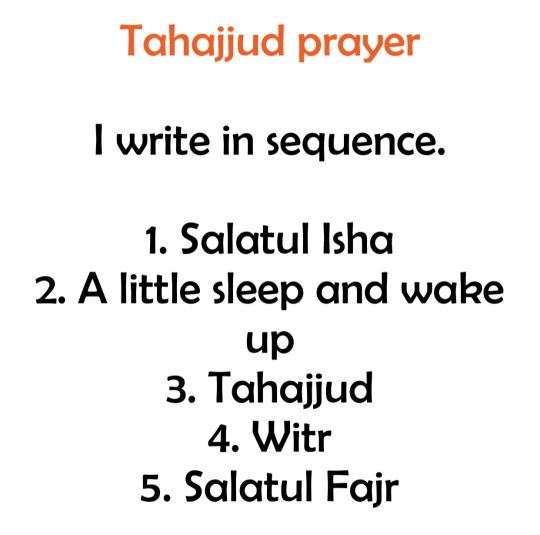
Tahajjud changes everything, If you are going through a hard time or your heart doesn't feel at peace or you want something to happen desperately. Start praying tahajjud and you will see miracles happening in your life.
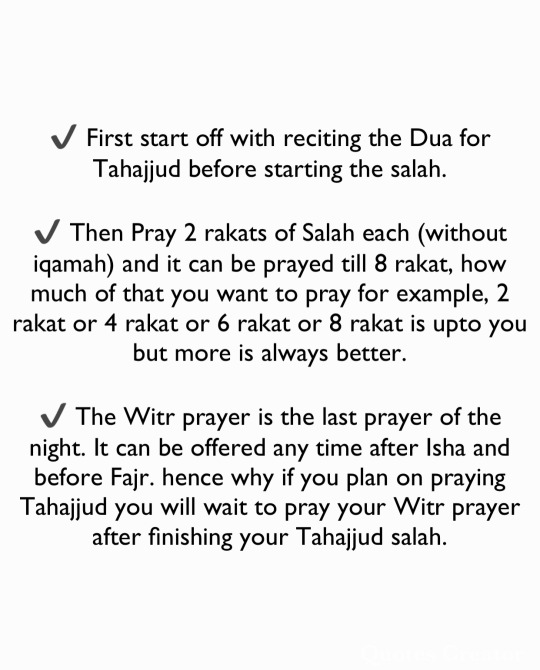
#islam#quran#islamic#muslim#islamicquotes#pakistan#islamic group#muslim community#muslim countries#istanbul#tahujjud#sunnah#Prophet ﷺ#hadith#muslim ummah#allah#jannah#salah#prayer#arabic dua#deen#dua#ramadan#tawakkal
21 notes
·
View notes
Text
“The one who is not loyal does not deserve your love.”
— Hz Ali (r.a)
#muslim#peace#alhamdulillah#allah#islam#islamicquotes#quran#sabr#beautiful#sunnah#islamicpost#islamicreminders#islamic knowledge#islamic#parents#paradise#prayer#quran quotes#quranic#quotes
248 notes
·
View notes
Text
Imām Al-Qurtubī رحمه الله said:
"The Salāh is a reason for (receiving) the provisions (from Allāh)."
【Al-Jām'i li Ahkām Al-Qurān (1/170)】
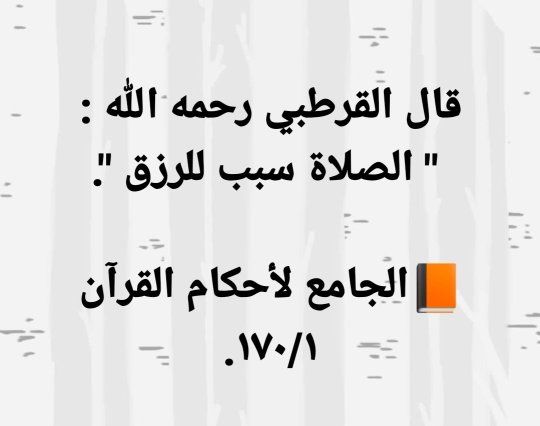
#islam#islamicquotes#welcome to islam#manhaj salaf#salaffiyah#sayings of the salaf#salaf#salafushalih#hadith#quran#prayer#dawah#sunnah
51 notes
·
View notes
Text
The Words - The First Word - Part 10
The Gracious All-Merciful One, Who causes everything to serve life; Who demonstrates His Compassion in the self-sacrifice, the extraordinary sweetness of compassion, of motherhood in plants and animals; Who sub- jects animate life to humanity and thereby displays our importance and sta- tus as the finest and loveliest weave from the Divine Lordship as well as His Mercy’s brilliance—that One has, due to His absolute lack of need, made His Mercy an acceptable intercessor for His animate creatures and human- ity. So, if you are truly human, say: In the Name of God, the All-Merciful, the All-Compassionate, and find that intercessor.
Nothing but Divine Mercy brings to life, nurtures, and administers all plant and animal species. It neither overlooks nor confuses one with another, but raises each at the right time and with perfect order, wisdom, and grace. It impresses the seal of Divine Oneness upon the earth’s surface. Just as this Mercy’s existence is as certain as the existence of the earth’s creatures, each creature also is a proof of its actual manifestation or being a reality.
The seal of Mercy and Divine Oneness is impressed upon the earth and upon humanity’s nature. The mercy stamped upon us is not less than the compassion and mercy stamped upon the universe. Our nature is com- prehensive, as we are the weave’s center and the Divine Names’ focal point.
#allah#god#islam#muslim#revert#reverthelp#reverthelp team#convert#new revert#new convert#new muslim#muslim revert#muslim convert#welcome to islam#revert to islam#convert to islam#how to convert to islam#prophet#muhammad#quran#sunnah#hadith#dua#pray#prayer#salah#help
3 notes
·
View notes
Text

Whoever does not give up false statements, and evil deeds, and speaking bad words to others, Allah is not in need of his (fasting) leaving his food and drink.
#NobleMarriage#Ramadan#RamadanMubarak#BlessedMonth#MuslimCommunity#Peace#Blessings#Fasting#Prayer#Charity#Reflection#SelfImprovement#Hadith#Sunnah
2 notes
·
View notes
Text
dua's to recite after praying ♡



tasbih:
- subhanallah x33
- alhamdulillah x33
- Allah akbar x33
- followed by Laa ilaaha ill-Allah wahdahu laa shareeka lah, lahu’l-mulku wa lahu’l-hamd wa huwa ‘ala kulli shay’in qadeer (there is none worthy of worship except Allah alone with no partner. to Him belongs all sovereignty and praise, and He has power over everything)
it is narrated by Abu Huraira that if anyone extols Allah after every prayer thirty-three times, and praises Allah thirty-three times, and declares His Greatness thirty-three times, ninety-nine times in all, and says to complete a hundred: “There is no god but Allah, having no partner with Him, to Him belongs sovereignty and to Him is praise due, and He is Potent over everything,” his sins will be forgiven even if these are as abundant as the foam of the sea. (Sahih Muslim 597a)
Istighfar:
- astaghfirullah x3
Ayatul Kursi
Hadith: Allah's Messenger (ﷺ) said: "Whoever recites Ayat al-Kursi at the end of every obligatory prayer, nothing but death will prevent him from entering Paradise."
لَّآ إِلَٰهَ إِلَّآ أَنتَ سُبْحَٰنَكَ إِنِّى كُنتُ مِنَ ٱلظَّٰلِمِينَ
La ilaha illa anta subhanaka inni kuntu minaz-zalimin
(There is no God but You, Holy art Thou. I have indeed been of the wrongdoers).
لَا حَوْلَ وَلَا قُوَّةَ إِلَّا بِٱللَّٰهِ ٱلْعَلِيِّ ٱلْعَظِيمِ
Laa hawla wa la quwwata illa billah
(There is no strength of power except Allah)
اللَّهُمَّ إِنِّيْ أَسْأَلُكَ حُسْنَ الْخَاتِمَةِ
Allahumma inni asaluka husnul khatima
(O Allah, grant me a good and beautiful end to my life).
اللَّهُمَّ إِنِّي أَعُوذُ بِكَ مِنَ الْهَمِّ وَالْحَزَنِ، وَالْعَجْزِ وَالْكَسَلِ، وَالْبُخْلِ وَالْجُبْنِ، وَضَلَعِ الدَّيْنِ، وَغَلَبَةِ الرِّجَالِ
Allaahumma ‘innee ‘a’oothu bika minal-hammi walhazani, wal’ajzi walkasali, walbukhli waljubni, wa dhala’id-dayni wa ghalabatir-rijaal
(O Allah, I seek refuge in You from grief and sadness, from weakness and from laziness, from miserliness and from cowardice, from being overcome by debt and overpowered by men, i.e. others).
there are, of course, many others. these are just a select few to avoid overwhelm and to encourage. there is a hadith that says, if, after praying, one stays on their prayer mat and does not break their wudhu (ablution), the angels keep on asking for Allah's blessings and forgiveness for them. they say 'O Allah! Forgive him and be Merciful to him'. (Sahih al-Bukhari 659)
this is why it is important and good to remain in your place for a while after praying and remember Allah. these dua's are good to start with. may Allah make it easy for us all, Ameen
#muslim#islam#religion#dhikr#zikr#sabrgirl#ramadan#islamic#holy quran#quran#hadith#prayers#prayer#faith#muslims#allah#sunnah#convert to islam#welcome to islam
183 notes
·
View notes
Text
Most modern marriage advice one will receive nowadays (especially women) from other people, is tips on how to create favorable conditions for you to easily LEAVE your marriage whenever you’d like. Hardly ever will you hear a woman of today’s generation giving advice to another soon-to-be-bride or newly wed on how to KEEP her marriage, be a good wife, and how to deal with her marital issues in the best way possible with minimum repercussions. Instead, they’re taught how to go into marriage with one foot in while keeping the other foot outside the door, claiming it’s to protect her, “just in case”.
Advice such as deterring her from having children in the early years “just in case”, keeping a secret amount of savings “just in case”, not fully forgoing her career to take care of the home “just in case”, or always having a side hustle she can turn to “just in case”, etc. is commonplace in conversations among modern women, and the issue with such a sentiment is the undertones of instability, uncertainty, and even mistrust that it’s planting in sisters towards their marriages and their husbands. Aside from that, the common theme of such “advice” is to basically never fully depend on one’s spouse due to their *possible* lack of reliability or the possibility of the marriage collapsing, again, festering pessimism in the minds of women.
All one can say to the sisters is, you’re better off listening to your mothers and grandmothers (if they are righteous, unwesternized Muslimāt) over random women on social media for marriage advice. It’s imperative that sisters turn to the right sources when it comes to seeking advice in issues of marriage, because with the influence of westernization and Feminism, most sources will direct them to wreak destruction upon their homes and marriages.
One messy argument with her husband, and the friend she confides in tells her “you don’t deserve that, who does he think he is, raising his voice at you?”, the women on social media constantly parrot “You deserve better”, the Kāfir therapist says “Each spouse should have equal footing and say in the marriage, otherwise it’s not healthy” etc. There are forces from all sides trying to tear down her home and justify her, EVEN if she may be in the wrong.
Likewise, to a bride they say “put your foot down from the first night, make sure he knows you wear the pants in the relationship” or “don’t let him financially control you, that’s abuse”, “don’t have kids too fast, let him show his true colors first, or else you’ll be stuck forever” etc, essentially giving tips on how to treat the first few years as a test drive and then drop it easily if it’s not what she imagined.
In a conversation with a sister once (may Allāh reward her), she mentioned how important it is to have people (or a person) who can remind you to fear Allāh when it comes to your marriage and spouse, and to be PATIENT. Someone who reminds you to put Deen and The Pleasure of Allah above your emotions and personal desires in such situations. It makes all the difference to have a righteous person to confide in and seek advice from, who is not only righteous, but also has experience and wisdom in such matters.
So, don’t ask random people on social media and don’t let the advice of the westernized and modern women in your life get to your head. Insha’Allah we need more righteous, practicing, experienced, and married brothers and sisters on the Manhaj to step up and offer advice based upon Qur’an and Sunnah, not western lifestyles and norms, so that our sisters and brothers don’t turn to the numerous dangerous alternatives offering destructive advice.
— Shared [Al Qawāreer]
#islamic knowledge#islamic#marriage#islam#sunnah#revert islam#Allah#hadith#islamic advice#islamquotes#haqq#islampost#allahuakbar#SubhanAllah#beautiful quote#beautiful#amazing#prayer#islamicreminder#Sahaba#quote#inspiring quotes#quotes#life quotes#daily qoute#daily reminder#motivation#life#daily life#niqabi
19 notes
·
View notes
Text
Daily Hadith
Bismillah Walhamdulillah Was Salaatu Was Salaam ‘ala Rasulillah
Narrated Anas (Radi-Allahu 'anhu):
The Prophet (Sallallahu 'Alaihi Wa Sallam) allowed 'Abdur-Rahman bin 'Auf and Az-Zubair to wear silken shirts because they had a skin disease causing itching.
Bukhari Vol. 4 : No. 268
#allah#god#islam#muslim#revert#reverthelp#convert#new revert#new convert#convert to islam#how to convert islam#prophet#muhammad#quran#sunnah#hadith#dua#pray#prayer#salah#quote#reverthelp team#muslim revert#muslim convert#welcome to islam#revert islam#new muslim
7 notes
·
View notes
Text
If you do not find the sweetness of doing a good deed then be aware that you have not done that deed.
Abdul Qadir Jilani (Rahimahullah)
#allah#god#islam#muslim#revert#reverthelp#reverthelp team#convert#new revert#new convert#new muslim#muslim revert#muslim convert#welcome to islam#revert to islam#convert to islam#how to convert to islam#prophet#muhammad#quran#sunnah#hadith#dua#pray#prayer#salah#help#religion#muslimah#quote
15 notes
·
View notes
Text
REFLECTIONS ON THE QUR'AN: Suratu'l Fatiha (The Opening)
“You alone do we worship...” (Al-Fātihah 1:5)
إِيَّاكَ نَعْبُدُ
You alone do we worship... (Al-Fātihah 1:5)
Our attention here is directed to the beginning of the verse where the object pronoun “You” is placed before the finite verb of “we worship.” The effect of placing the object pronoun in the initial position implies exclusivi-ty: “O God, we wholeheartedly proclaim, acknowledge, and confess that it is only You, and none but You that we turn to, bow before, and seek comfort in. We believe that by Your side alone we can attain serenity and peace.”
Another very subtle point to note here is the tense; instead of the use of ‘abadnā (we worshipped) in the past tense, in this verse God Al-mighty uses na’budu in the present. ‘Abadnā, which is the past tense form of the verb ‘A-Ba-Da, connotes “We did it!” or “We made it!” Such a use, however, would violate and in a way be contrary to the very spirit of worship, for it sounds like an accomplishment on the personal side, which implies pride in a completed success, as if we already fulfilled something and succeeded at what we wanted to accomplish all by ourselves. In other words, it would mean that the worshipper has already arrived to the intended point by fulfilling his or her duty of worship all by himself or herself.
However, na’budu, which is the present tense form of the verb ‘A-Ba-Da, implies that the task is not yet finished, which renders such a mis-understanding impossible. Meaning “we worship,” na’budu refers to our intention and determination to acknowledge our eternal impotence and poverty before God’s Presence. This can also be paraphrased as follows: “O Lord! We are determined that we will not sacrifice our freedom to anyone but You and we will not fall in humiliation before anyone or anything. We turn to You fully intent on servanthood and worship; our eyes are fixed upon You and no other. We are filled with a desire for submission and prayer. Resolute to distance ourselves from anything other than You, we wish to always stand opposed to all that You do not like or want. Our intention is our greatest worship; we hope that You will accept our intention as our worship. We plead for Your favor, not in proportion to the number of things that we have done, but to those we have intended to do.”
The finite form of the verb, na’budu, or “we worship,” (which is in-flected not only for tense but also for the first person plural) also emphasiz-es that the worshipper is not alone with such thoughts. Hoping that all others are thinking in the same vein, the worshipper proclaims, “In making this request, I am in full concordance with all my fellow worshippers.” Through such an irrefutable alliance and agreement, the worshipper is empowered with the same intention, confirmation and testimony of all worshippers, and thus he or she turns to the presence of the Almighty Lord Who meets all needs. In this manner, they can relieve themselves from evil involuntary thoughts that Satan may cause to appear in them, and they can portray a complete form of worship toward the Perfect Divinity.
#allah#islam#muslim#god#quran#help#ayat#hijab#muslimah#revert#convert#religion#reminder#dua#salah#pray#prayer#sunnah#hadith#prophet#muhammad#welcome to islam#how to convert to islam#new muslim#new revert#new convert#revert help#convert help#islam help#muslim help
8 notes
·
View notes